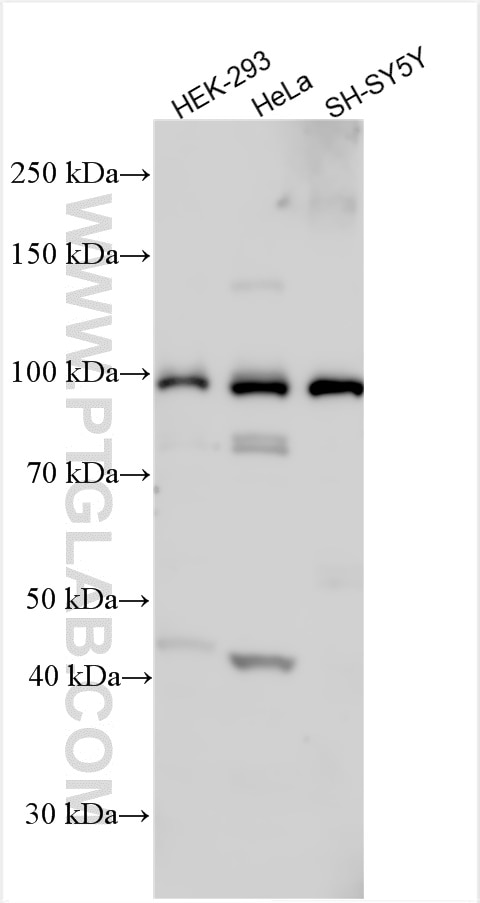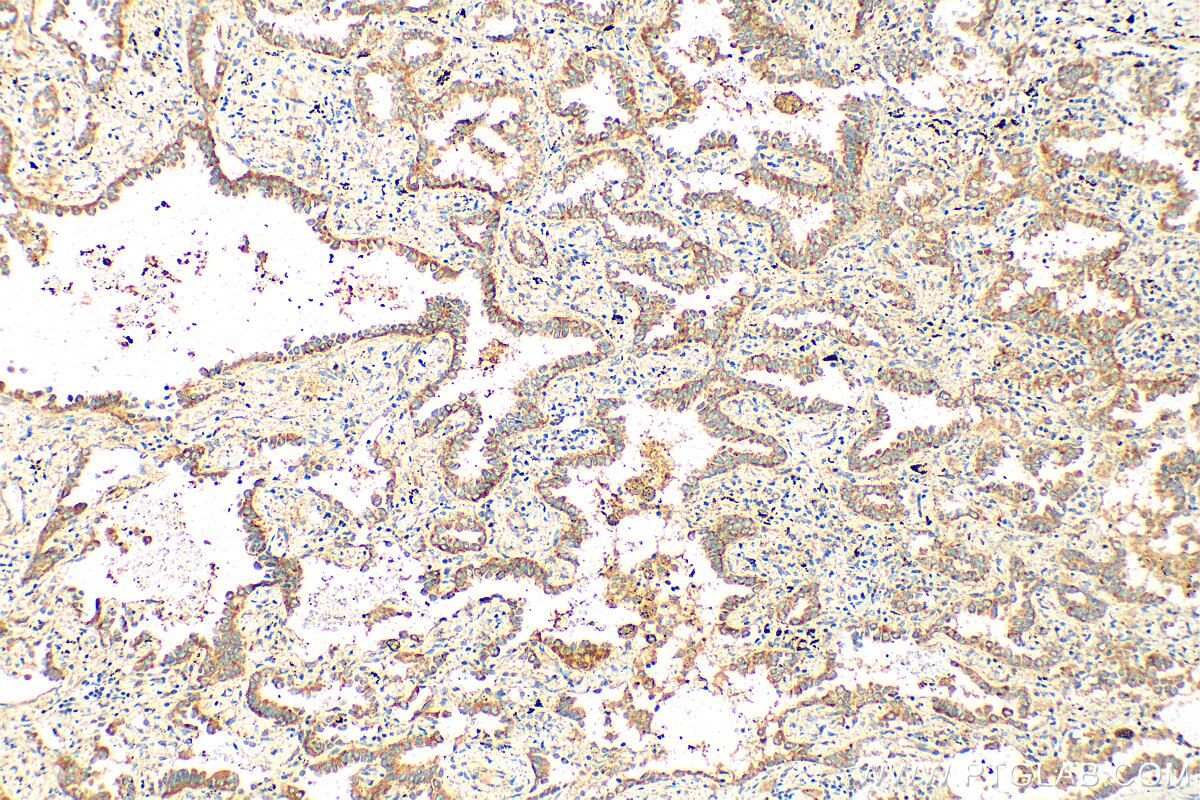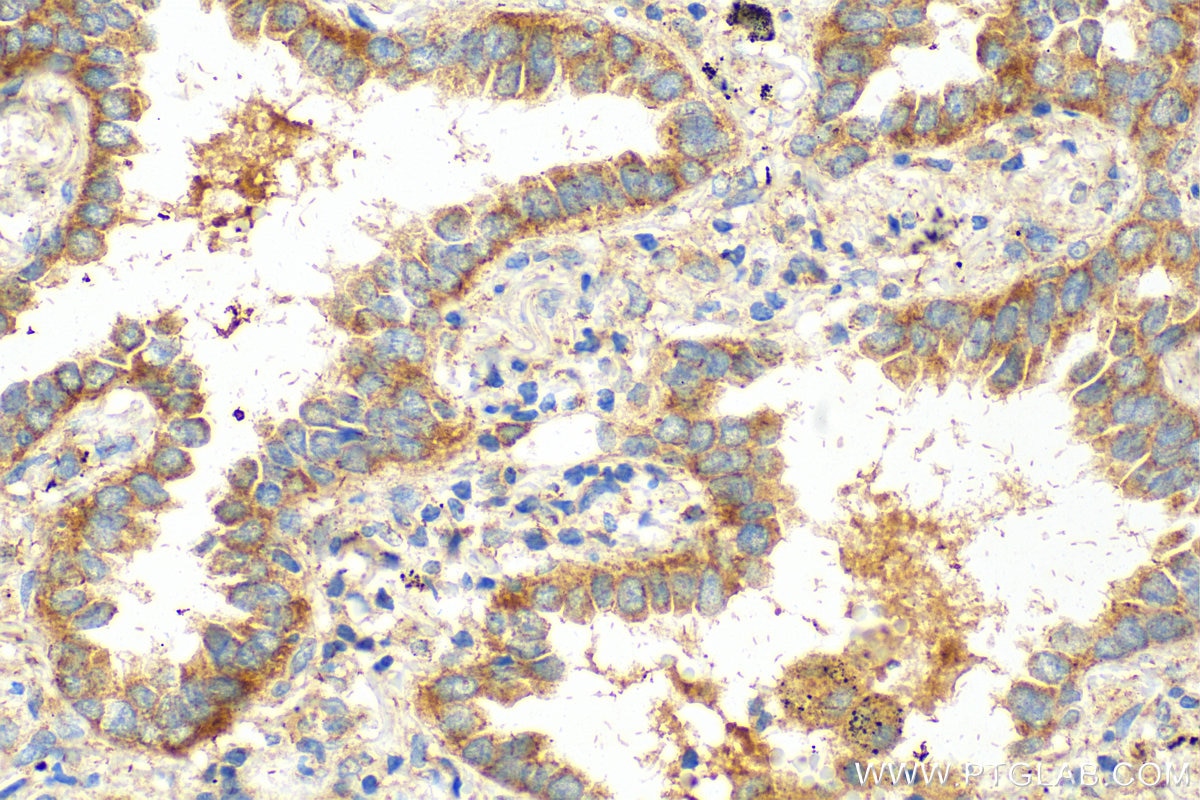Tested Applications
| Positive IHC detected in | human lung cancer tissue Note: suggested antigen retrieval with TE buffer pH 9.0; (*) Alternatively, antigen retrieval may be performed with citrate buffer pH 6.0 |
Recommended dilution
| Application | Dilution |
|---|---|
| Immunohistochemistry (IHC) | IHC : 1:50-1:500 |
| It is recommended that this reagent should be titrated in each testing system to obtain optimal results. | |
| Sample-dependent, Check data in validation data gallery. | |
Product Information
11295-1-AP targets SPIRE1 in IHC, ELISA applications and shows reactivity with human samples.
| Tested Reactivity | human |
| Host / Isotype | Rabbit / IgG |
| Class | Polyclonal |
| Type | Antibody |
| Immunogen | SPIRE1 fusion protein Ag1798 Predict reactive species |
| Full Name | spire homolog 1 (Drosophila) |
| Calculated Molecular Weight | 64 kDa |
| Observed Molecular Weight | 50-60 kDa, 95 kDa |
| GenBank Accession Number | BC016825 |
| Gene Symbol | SPIRE1 |
| Gene ID (NCBI) | 56907 |
| RRID | AB_3085370 |
| Conjugate | Unconjugated |
| Form | Liquid |
| Purification Method | Antigen affinity purification |
| UNIPROT ID | Q08AE8 |
| Storage Buffer | PBS with 0.02% sodium azide and 50% glycerol , pH 7.3 |
| Storage Conditions | Store at -20°C. Stable for one year after shipment. Aliquoting is unnecessary for -20oC storage. 20ul sizes contain 0.1% BSA. |
Background Information
SPIRE1, Protein spire homolog 1, belongs to the family of Wiskott-Aldrich homology region-2 (WH2) proteins (PMID: 11747823). SPIRE1 acts as an actin nucleation factor, associated with the slow-growing pointed end of the new filament (PMID: 11747823, PMID: 21620703). SPIRE1 and FMN2 promote assembly of nuclear actin filaments in response to DNA damage in order to facilitate movement of chromatin and repair factors after DNA damage (PMID: 26287480).
Protocols
| Product Specific Protocols | |
|---|---|
| WB protocol for SPIRE1 antibody 11295-1-AP | Download protocol |
| IHC protocol for SPIRE1 antibody 11295-1-AP | Download protocol |
| Standard Protocols | |
|---|---|
| Click here to view our Standard Protocols |







